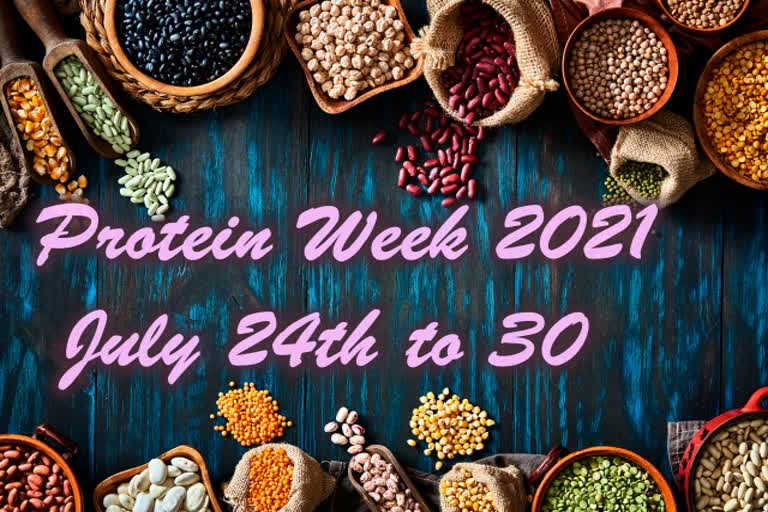We have seen our mothers and grannies making paneer or curd at home with leftover milk. Ever wondered what that water-like substance is? Often thrown as waste after making paneer or seen as leftover after the curd is set is actually pure milk protein that gets filtered during the process. It's a quick digesting class one protein that the human body can easily absorb and can benefit from.
Instead of throwing the residual water after making paneer or removing it from curd to make it thick and creamy, use it in kneading your dough for chapati, or add it to dals, vegetable curries, soups, and even for cooking rice and pasta. Our Indian vegetarian meals lack class one source of protein and this can positively increase the nutritional value of simple everyday meals.
As per Vandana Kakodkar, a Consultant Dietician, approximately an individual requires 0.8 to 1.0 gm/kg body weight of protein. For e.g. a person who weighs 50 kg requires 40-50 gm of proteins per day. This can be met by consuming 2-3 katoris of pulses, 1 -2 glasses of milk products and the rest can come from cereals (rice, jowar, wheat, etc.). A person who is a nonvegetarian can consume 2 -3 pieces of fish or 1 big piece of chicken or 2 eggs and the rest through the cereals like rice or chapatti.
How do we get proteins from natural sources?
- Proteins from animal sources like milk and milk products, eggs, fish, chicken, meat, etc. have all essential amino acids and are called complete proteins or high biological value proteins
- Proteins from vegetable sources nuts, pulses, soya beans, dals, mushrooms lack some essential amino acids and are known as incomplete proteins or low biological value proteins.
- But when 2 or more incomplete proteins are eaten together, they complement each other and provides the essential lacking amino acid. for eg., A common cereal pulse combination would be rice and dal or khichdi. As compared to proteins of animal origin, the vegetarian sources of proteins are low in saturated fats, have no cholesterol, and has added benefit of dietary fiber, antioxidants, and phytochemicals.
- So having 1 Katori of dal and 1katori of pulses (beans, peas, rajma, moong) along with chapati or rice will definitely fulfill the protein requirement for lunch or dinner.
- The use of soy flour to wheat flour in the proportion of 1: 4 increases the protein content of the chapatti.
- Don’t overload your body with too many animal proteins as the same can be achieved with plant proteins that are healthier.
There are 20 amino acids, the building blocks of life, in nature. These amino acids build innumerable proteins that make the skin, hair, muscles, bones, etc. Without proteins, life could not be imagined. Humans were getting enough protein in the days of hunting and gathering times. When the human became more civilized and getting staple food from agriculture, protein deficiency is felt. However, that deficiency could be fulfilled by dairy.
Cysteine, Glutamine, Lysine, Arginine, and some other amino acids are known as essential amino acids because we cannot synthesize them inside our bodies. Therefore, we need to eat them in the form of meat or eggs. Alanine, Glycine, Tyrosine, Aspartate, etc. are nonessential and we can synthesize them in our bodies from carbohydrates or fats. With empirical techniques, Ayurveda could understand what to eat to replenish the body to get essential amino acids.
Here are some examples of complete proteins-
- Rice and dal
- Peanut butter sandwich on whole grain bread
- Hummus with whole grain bread/ whole grain pitas
- Salad made with beans and nuts or seeds
- Yogurt with sunflower seeds or almonds
Dr. Ranganaykulu, an Ayurveda expert, Hyderabad told us, though the literature of Ayurveda recommended eating the meat of various birds, animals, and fish, due to influences of religion Ayurveda turned to vegetarianism for quite a time. Therefore, Ayurveda recommended dairy products for good health. Milk and dairy products can provide all 9 essential amino acids required for building proteins.
Milk is also thought to be improving immunity according to Ayurveda. In addition to milk, Ayurveda recommended fruits, nuts, roots which contain appreciable quantities of protein. Therefore, the wisdom of Ayurveda dietetics fights protein deficiency very efficiently. Eggs also provide all essential amino acids. The question is whether we are taking enough amounts of protein (100gms) every day?
Also Read: Diet Based Weight Loss, Healthy Or Cause Of Concern



